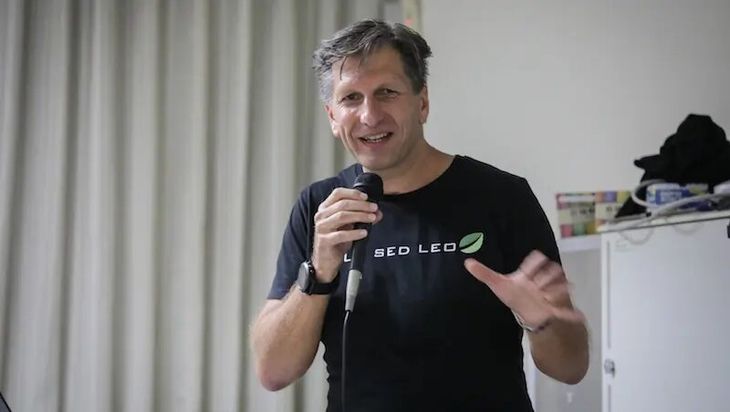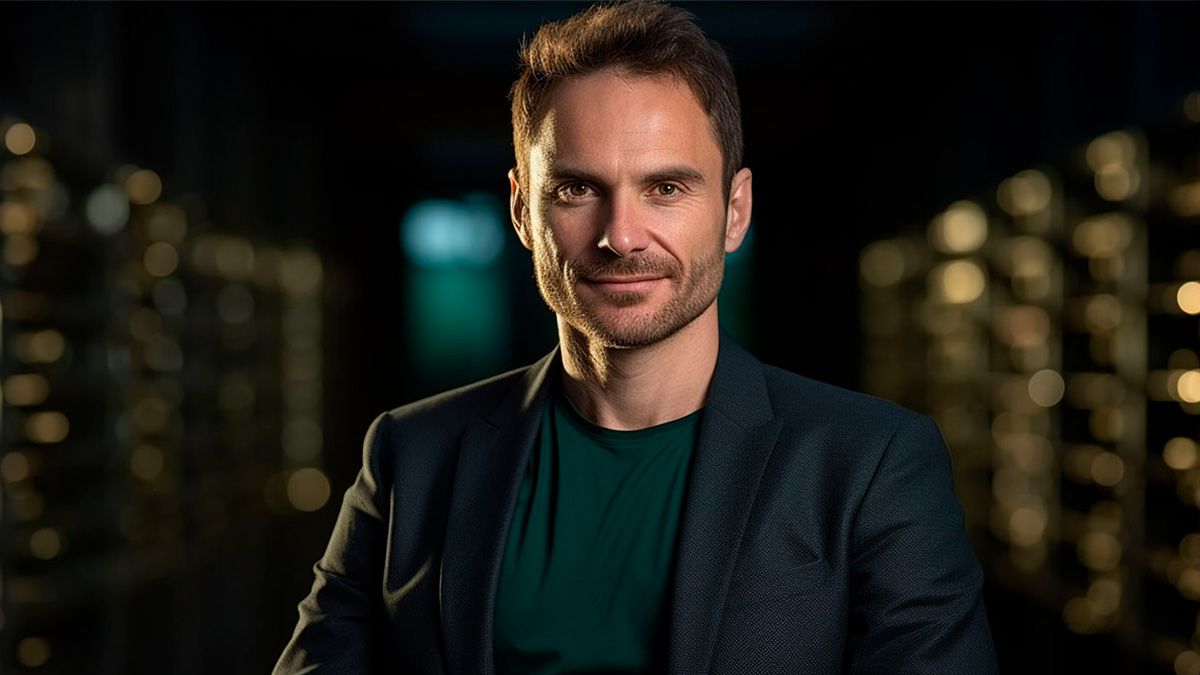Pablo Ardoino, a computer enthusiast
Italian Paolo Ardoino is the current CEO of Tether. He is 40 years old, born and raised on his family farm in the prosperous north of Italy. Since he was little he found his passion in computingHe started programming at the age of eight and set out to enter the University of Genoa to study computer science and mathematics. He graduated in 2008 and went on to become a researcher on a military project on high-availability resilient networks and cryptography at the company Selex Communications.
He later emigrated to seek better job opportunities and his first destination was London. He arrived in 2013 and founded Fincluster, a company that created cloud-based financial applicationsHis clients were consultants, fund managers and institutions in the English cities of Milan and Lugano.
Through his company he met Tether’s CFO in 2014, Giancarlo Devasini. He asked Ardoino for help to make his cryptocurrency could progress on the Bitfinex platformThe Italian became the face of the USDT stablecoin alongside Devasini and Jean-Louis van der Velde, who raised the funds for the currency’s operation.
Last year Ardoino took the lead Tether, although its two partners still have large stakes in the company and maintain their decision-making power. Since then, they have made large investments, such as the US$1 billion they invested in Bitcoin mining in El Salvador, powered by wind and solar energy.
The Italian businessman owns 20% of Tether’s shares. Forbes magazine estimated that he has a fortune of estimated at US$3.9 billion.
Giancarlo Devasini, the guilty plastic surgeon
Tether’s CFO is Giancarlo Devasini. He is 57 years old, born in Turin and graduated in Medicine in Milan. He worked as a plastic surgeon for several years until, legend has it, He felt frustrated with his professiona feeling that overwhelmed him when could not convince a patient that her breasts did not need surgery.
JVM3MFXNYZDCLDFGTLIB4H3LVI.avif
Giancarlo Devasini was a plastic surgeon before becoming a billionaire with Tether. His business background is not the best.
Thus, Devasini abandoned medicine and moved into the world of electronic products and built a group that, according to the Bitfinex website, reached a turnover of 100 million euros and sold in 2008, just before the financial crisis.
However, investigations carried out in his country revealed that his company’s income They amounted to only 12 million euros and the “Devasini empire” turned into ashes following a fatal fire at its offices and warehouses in February of that year. The parent company, Solo, was liquidated that same year. Its subsidiaries, Acme, Compass and Freshbit, were valued at one euro each in Solo’s accounts.
In his 20 years of selling computers and hardware, Devasini called himself “Marline”named after the mythical magician from the stories of the 5th century, the time of King Arthur and the Knights of the Round Table, who introduced himself in his Skype communications as “merlinmagoo”.
In the mid-90s had to pay compensation of 100 million lire by a counterfeiting suit brought against him by Microsoft. Then, in 2007, another company he owned, Acme, was sued by Japan’s Toshiba for failing to respect its patents due to the format specifications of the DVDs Devasini sold.
In 2010, Perpetual Action Group, another Monaco-based company created by Devasini active in the electronic components market was reported by an American buyer that instead of receiving the memory chips he had purchased, he found a piece of wood in the package.
In 2012, Devasini gained attention on a Bitcoin forum when he asked participants if they were interested in buying DVDs or CDs for 1 Bitcoin cent apiece in large volumes. He offered free shipping for large orders.
In 2014 Tether was launched and the former Italian surgeon and former used electronics dealer soon became his brainIn fact, he is Chief Financial Officer of both Tether and Bitfinex.
In 2016, Devasini still had to face up to his past. Alcosto, another of his old electronic ventures, was accused by the British Tax Commission of tax fraud for their involvement in a long chain of transactions that ultimately led to them requesting VAT refunds from the British tax authorities.
In the United States, it has not achieved a good reputation either. Letitia James, the New York prosecutor, described Tether, Devasini and their partners as “unlicensed and unregulated individuals doing business in the darkest corners of the financial system.”
Jean-Louis van der Velde, the Dutch phantom
Self-defined as technologist and entrepreneur Serial, Jean-Louis van der Velde speaks five languages and has accumulated 30 years of experience in the international high-tech industry, followed by a gradual move into international finance and Fintech.
Tether-CEO-Jean-Louis-van-der-Velde-1.jpg

Jean-Louis van der Velde, the Tether executive with the least public exposure, is one of the company’s hidden brains.
He left his native Netherlands in 1985 to attend university in Taiwan and has lived in Asia ever since.
Since arriving in Asia, He co-founded several IT companies spanning from hardware design and development to software, and has been at the heart of the early development of several key technologies across its businesses (embedded systems, video streaming, IPTV, digital TV, web-based applications and digital marketing).
But the side of his profile that has had more relevance in defining him is his scarce public presenceHe is a cultivator of a very discreet style to the point that He doesn’t give interviews, he closed his Twitter account and he no longer appears in public.
Its low exposure has reached such a degree that it is referred to as the “ghost” directorand there are even people in the crypto world who have gone so far as to claim that his name It is a pseudonym and that does not exist as its name indicates.
As the former CEO of Tether, Van der Velde serves as a figurehead responsible for maintaining Tether’s high-level strategic relationships with banks and regulators, and owns approximately 20% of the company. His net worth is around US$4 billion. according to Forbes.
However, contrary to the low profile he has cultivated since joining Tether, during the dotcom era he had normal levels of exposure. He was a regular speaker at conferences on open source technologies as co-founder of one of the most advanced embedded Linux companies of the time. He has held senior management positions in several large private and public corporations in IT, distribution, manufacturing and still serves as CEO at a Chinese automotive group and as a VC based in Hong Kong.
He is also a professor at the National Taiwan University of Science and Technology (NTSTU) and a visiting professor at Taiwan University (Blockchain and Regulation).
Source: Ambito
I am Pierce Boyd, a driven and ambitious professional working in the news industry. I have been writing for 24 Hours Worlds for over five years, specializing in sports section coverage. During my tenure at the publication, I have built an impressive portfolio of articles that has earned me a reputation as an experienced journalist and content creator.




